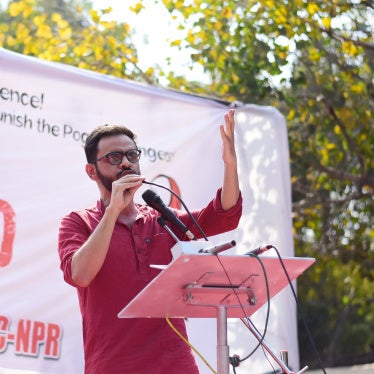Veteran Chinese journalist Gao Yu has already survived the Cultural Revolution, becoming a leading political journalist during the turbulent but hopeful 1980s, and previous stints in jail. On Friday, a Beijing court will present the 71-year-old with another obstacle when it announces a verdict against her on charges that she “illegally provided state secrets abroad.”
Like many prosecutions of government critics, Gao’s case has been marred by procedural violations. She told her lawyer that she was forced to confess on national television in May 2014 out of concern for her son, who had been taken into custody and later released. She was prevented from meeting with her lawyers until two months after being detained. During that time police did not notify her family about her detention. If convicted, Gao faces a life sentence if the court deems her crime “particularly serious,” though her lawyers have said that they expect a sentence between five and ten years.
Gao’s journalistic career began in the 1980s at the government wire service, China News Service. She went on to become the vice editor of the liberal Economics Weekly, which was shut down for its instrumental role during the pro-democracy Tiananmen Square protests of 1989. For reporting on and supporting the protests, Gao was imprisoned from June 1989 to August 1990. She was imprisoned again from 1993 to 1999 on charges of “illegally provided state secrets abroad” – the same charge she currently faces.
On April 24, 2014, she was again detained, this time for allegedly leaking a document issued by the Chinese Communist Party, known as “Document Number 9,” which warned senior members against “seven perils,” including the “universal values” of human rights.
Between her last prison term and her current detention, Gao remained active in writing political commentaries, and is most recently known for her hard-hitting analytical pieces criticizing President Xi Jinping early in his tenure.
If Gao’s rigorous, critical reporting about vital government policies constitutes a threat to the state, it’s hard to see her prosecution as anything other than the latest effort by the Chinese leadership to silence virtually all debate. No ‘China dream’ can be realized until peaceful criticism is respected. Dropping the charges against Gao immediately would be one step down that path.









